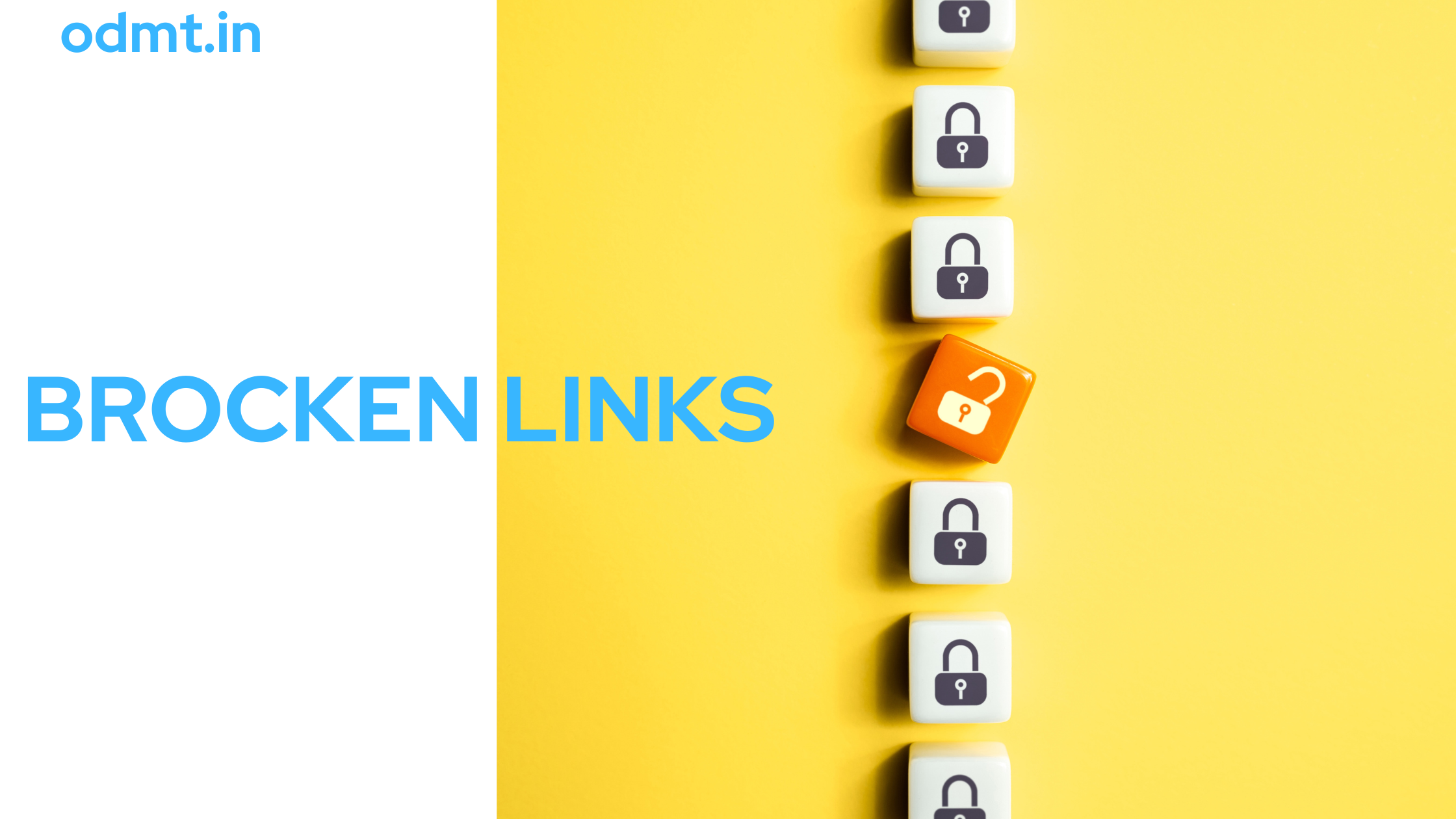What Are Broken Links?
A broken link (also called a dead link) is a hyperlink that no longer works, leading to a 404 error page or an inaccessible website.
🔹 Types of Broken Links:
1️⃣ Internal Broken Links – Links that point to non-existent pages on your own website.
2️⃣ External Broken Links – Links that point to other websites that have removed or changed their content.
3️⃣ Broken Images & Media – Links to missing images, videos, or documents (PDFs, etc.).
Why Are Broken Links Bad for SEO?
🚫 Poor User Experience: Visitors get frustrated when they click on broken links.
🚫 Hurts SEO Rankings: Search engines see broken links as bad website maintenance.
🚫 Increases Bounce Rate: Users may leave your site if they encounter multiple dead links.
🚫 Loss of Backlink Value: If a page with backlinks gets deleted, you lose link authority.

How to Find & Remove Broken Links?
Follow this step-by-step guide to fix broken links on your website.
Step 1: Use Broken Link Checker Tools
✅ Google Search Console
- Go to Google Search Console → Coverage Report to see 404 errors.
✅ Ahrefs Broken Link Checker
- Enter your website URL in Ahrefs → Go to Site Audit → Page Explorer → Filter “404 errors.”
✅ SEMrush
- Run a Site Audit to detect broken links.
✅ Screaming Frog SEO Spider (FREE for up to 500 URLs)
- Enter your website URL → Start the scan → Check “Response Codes” for 404 errors.
✅ Broken Link Checker Plugin (for WordPress sites)
- If you use WordPress, install the “Broken Link Checker” plugin to automatically detect dead links.
Step 2: Fix or Remove Broken Links
🔹 How to Fix Internal Broken Links?
✔ Redirect the Link (Best option)
- If a page was deleted, set up a 301 redirect to a relevant page.
- Use Yoast SEO (WordPress) or Redirection plugin to easily create redirects.
✔ Update the URL
- If a page was moved, update the broken link to the new URL.
✔ Replace the Link
- If a linked page no longer exists, replace it with a similar, relevant page.
✔ Remove the Link
- If no replacement exists, simply remove the broken link.
🔹 How to Fix External Broken Links?
✔ Find an Alternative Source
- If an external website removed a page, replace the link with a similar page from another source.
✔ Contact the Website Owner
- If the broken link is on another website, email the website owner and request them to update or remove the link.
✔ Use the Wayback Machine (Archive.org)
- If an external page is deleted, check Wayback Machine to see if an archived version exists.
🔹 How to Fix Broken Image & Video Links?
✔ Re-upload the Media File
- If the file was deleted, re-upload it with the same URL.
✔ Check CDN (Content Delivery Network) - If you use a CDN (Cloudflare, AWS, etc.), ensure it’s not blocking images.
✔ Replace with a New Image or Video - If the original file is lost, find a similar replacement.
Step 3: Monitor & Prevent Future Broken Links
✅ Use a Broken Link Checker Tool Monthly
- Schedule monthly audits with Ahrefs, SEMrush, or Screaming Frog.
✅ Check Links Before Deleting Pages
- Before deleting a page, check if it has backlinks and create a 301 redirect.
✅ Update Old Blog Posts & Pages Regularly
- Outdated content often contains broken links.
✅ Monitor Backlinks with Google Search Console
- If backlinks are pointing to a deleted page, reach out to webmasters to update the link.
Conclusion
Broken links harm SEO, user experience, and site rankings. Regular audits & fixes will keep your website healthy, optimized, and user-friendly.
Would you like help fixing broken links on your website? 😊
